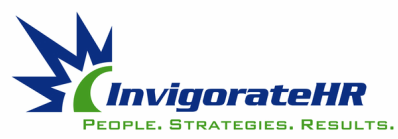 Forbes.com recently published an article discussing workplace trends for 2023. As we all know, our ways of working have changed significantly over the last several years forcing employers to pivot and reexamine how we get work done in this new age. It’s been challenging but it has made us focus on what is truly important—people! Several trends focused specifically on people and three struck a chord:
It is unfortunate to say that employers have lost the human side of work over the last several decades. Strong performance is rewarded by more demands, more work, more hours, more commitment to the organization instead of more human-focused recognition such as a living wage, support for strong mental health, paid time off to refresh and be with family, flexibility, etc. But employee demands are now moving toward humanity—what is needed by people to be healthy and happy. Employers must shift if they want to secure the best people. Employee Well-Being Is a Human Imperative A recent Surgeon General report suggests that 81% of workers will be looking for workplaces that support mental health. Mental health and wellbeing has been brought to the forefront of workplaces letting employers know that work, workplaces, coworkers, etc. can impact a person both positively and negatively. Workplace stress is on the rise, and it must be addressed. Many employers are looking at ways to reshape their workplace culture, benefit programs, and employee support resources to make employee wellbeing a priority. The Future of Work Is Flexibility for All Employees
In an Executive Networks Global Research study of 1,301 workers, entitled The 2023 Future of Working and Learning Report, when we asked what matters most in terms of flexible work, more knowledge workers and frontline workers selected flexibility in when work gets done over flexibility in where work happens. Today’s workers have complicated lives that have complicated schedules and the balancing act they have to perform can almost be impossible. That’s why employers must recognize that workplace flexibility can provide employees what they need to manage their families, personal responsibilities, health and physical activities etc. Flexibility is about finding what works to help the employee get work done effectively and balance their personal needs. Human Skills Are the New Hard Skills for The Future of Work It is interesting to note that “human” skills are the “new” hard skills for the future. Shouldn’t they have always been first since people do the work? Everyone isn’t a robot. But the practice of seeing people as a commodity or just as a number has made many disregard the importance of human skills and the need to train on them. Pearson’s Skills Outlook report on “Power Skills” analyzed labor market trends in four major economies (US, UK, Australia, and Canada) and found that, while technical skills remain highly valued, the top five most sought-after skills that employers are seeking today are all human:
Although many employees today are working remotely and from various locations around the globe, they aren’t working “alone” and have to work with others to get work accomplished. Therefore, knowing how to interact with people in person and via remote means is critical to being a strong contributor and achieving goals. So, where should you focus for 2023? Your PEOPLE. Reevaluate what the organization is doing to ensure the human element is present in the business strategy. Employee burnout is real. The talent shortage is real. The skills gap is real. We cannot afford to lose those employees in whom we have invested. It’s time to focus on our people—our most valuable investment. Comments are closed.
|
Archives
December 2024
|

 RSS Feed
RSS Feed